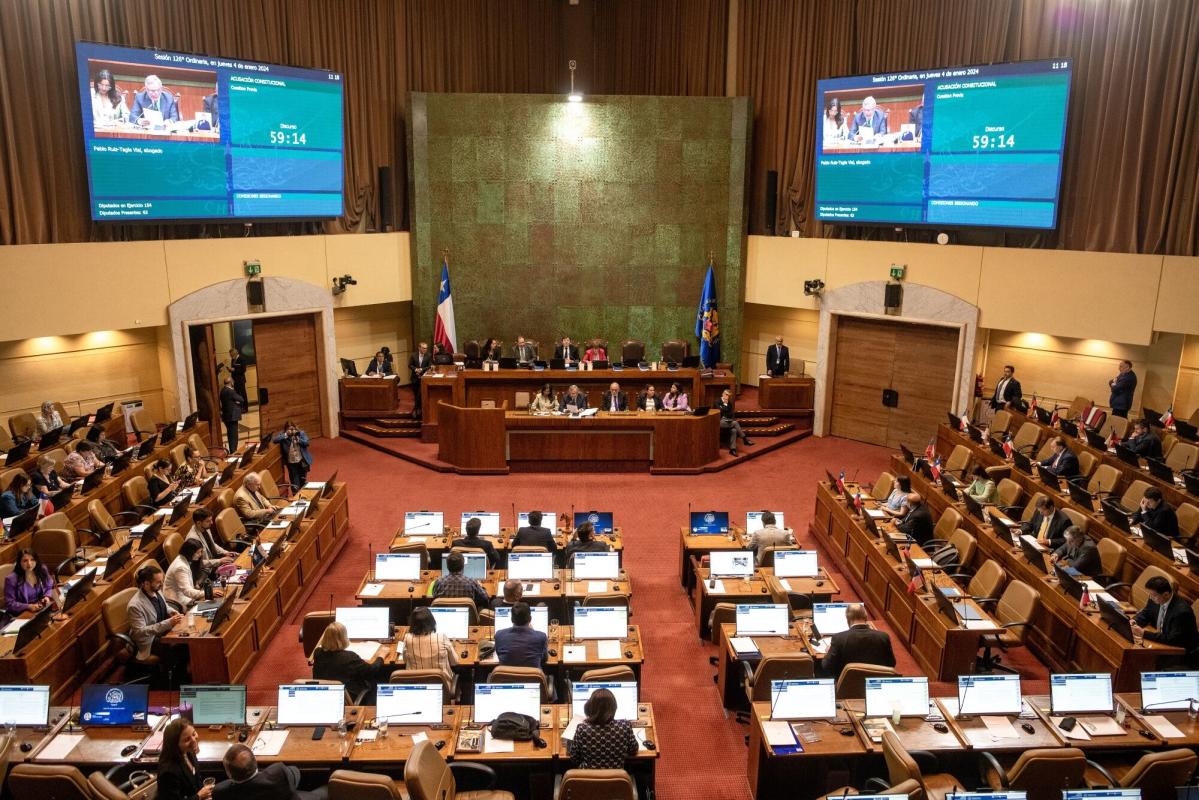(Bloomberg) — Chile’s lower house of Congress approved the base text of President Gabriel Boric’s pension reform, while rejecting a key clause, damping government celebrations over one of its few legislative victories.
Most Read from Bloomberg
Lawmakers backed the legislation on Wednesday by 84 votes to 64, but went on to reject a proposal over the destination of funds from a new employer pay-in as they subsequently voted on the bill article-by-article.
The vote still advances one of Boric’s marquee proposals and gives temporary respite to a government that has been battered by legislative defeats, low popularity and graft accusations against some allies. It follows a burst of last-minute talks over support from smaller parties that kept analysts guessing until the last minute. The legislation faces hurdles to becoming law due to the political fragmentation among coalitions in the Senate.
The approval comes just before the start of legislative recess, meaning that eventual debates and votes in the upper chamber will come in March. Senators are likely to introduce more modifications to the bill.
“This is an important step, but we’re still only at the halfway point,” Boric wrote Wednesday in a message on X, the social media platform formerly known as Twitter. “I am convinced that agreements are the way forward.”
The bill seeks to address low pensions that were one of the drivers behind a wave of social unrest starting in late 2019. The government wants to shift away from a system of individual savings accounts managed by private funds, toward a more mixed set-up with new financing used to raise the payouts of current and future retirees.
Read more: Chile to Overhaul Pension System That Underpins Market
Before its rejection in article-by-article voting, a clause stipulated that employers divide new pension payments between workers’ individual savings and a solidarity fund. That plan ran afoul of both lawmakers and the broader population, with a Cadem poll published on Sunday showing 65% of Chileans wanted that money only channeled to their personal savings.
Investors are paying close attention given that the current pension fund managers, known as AFPs, represent the bedrock of the Chile’s capital markets with their pool of $170 billion in assets under management.
Increasing the government’s minimum guaranteed pension and extending its coverage, a central part of the reform, would cost roughly 1.2% of gross domestic product alone, Finance Minister Mario Marcel said on Tuesday.
Main points of proposed pension reform:
-
Replaces current pension fund managers, known as AFPs, with private investment managers and also a government-run alternative
-
Creates a separate entity in charge of both collecting savings and making payouts to retirees
-
Raises state-paid minimum guaranteed pension to 250,000 pesos ($275) per month
(Updates to include comments from Boric in fifth paragraph)
Most Read from Bloomberg Businessweek
©2024 Bloomberg L.P.


